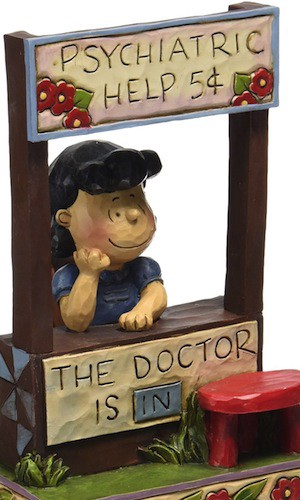How To Be Your Own Life Coach
by Alexandra Molotkow

Life coaching is about results, and one of those results is great writing about life coaching. Last year, Genevieve Smith reported on a $2-billion industry requiring “no particular course or legal licensing” to practice.
Courses are available, ranging from a $50 webinar-plus-printable-certificate to $12,000 university programs. Smith took a course through the legit-sounding Coaches Training Institute, and observed some kind of inner-self-actualization exercise in which a student named Aaron was declared a “WILD MAN”:
An assistant handed Aaron a name tag and a marker. He dutifully wrote WILD MAN on the tag and stuck it to his shirt.
The class moved on to the next student. In a short span, they deemed one person genuine and perceptive but in need of confidence (henceforth WARRIOR), another student earnest and sweet yet lacking in explosions (SUPERHERO). The class’s only black man was found to be soulful and deep and was encouraged to share his inner wisdom. The group decided he should be a movement leader. The black women in the group all ended up being labeled divas of some sort.
By the end, Smith writes, “it turned out I was a pretty good life coach. I was told by one friend that he would have gladly paid for my services and by another that it was better than therapy.” She was a natural: as she’d noticed at the very beginning, many of the skills taught “were no different from those necessary for being a good friend.”
Citing Barbara Ehrenreich, Smith ties the rise in life coaching to job insecurity: we have to be prepared to fill many roles over the course of endless, and endlessly fluctuating careers. “For those hobbled by job frustrations, the coach was there to help craft meaning and purpose out of layoffs.” Emily Landau, who wrote about life coaching for Flare in January, believes the rage for life coaching is symptomatic of a Millennial culture in which we turned out as “coddled as purse dogs” and totally fucked by the job market. Life coaching is an antidote — not only because it helps us with our lives, but because it offers a livelihood:
Coaching itself is proving to be its own solution to the millennial conundrum. It combines entrepreneurship, personal branding and meaningful work, plus it’s lucrative: many coaches have leveraged their brands into group coaching, motivational speaking or something called thought leadership: an authoritative platform they can license to other coaches and spin into books and webinars.
“A kind of emotional pyramid scheme,” as Smith put it.
My response to the Millennial job conundrum is this: do exactly what you want to do, while doing whatever pays enough to fund it. When those imperatives align, you are a lucky of son of a gun, and you need to keep up the gratitude while reminding yourself that it won’t last forever. I think I maintain a fairly healthy mix of ’90s idealism and ’10s ambition, in that I have my dreams, but will do anything for money. As long as it’s ethical.
So I think about coaching often, as a hustle of sorts. I can listen! I care about my friends’ “best selves” and think I’m OK at encouraging them. Coaching seems like a way to make money — like, $100 an hour! — using skills I’m always working on any way, which is why the idea, ultimately, makes me cringe. The thought of commercializing my friendship seems beyond mortifying, a mutant hybrid of embarrassing and evil. For me, at least, or in terms of the way I’ve thought about life coaching — I’ve met normal, well-meaning, even cool people who work as life coaches — it’s not ethical.
Jess Zimmerman, writing for The Toast earlier this month, wonders why “offering advice, listening to woes, dispensing care and attention” isn’t “supposed to be transactional. People are disturbed by the very notion that someone would charge, or pay, for friendly support. It’s supposed to come free.” And she raises some really great points applicable here, including: if support is a commodity, and friendship is sacred, then we can’t treat our friends like life coaches!
We have to become our own, and the solution is: talk to yourself!!! Studies have found that talking to yourself can up your confidence and calm you down; also, that you should talk to yourself as if you’re two people. Because you are: one of you is an utterly dysfunctional bog of creativity, while the other has the answers to literally 95 percent of your problems. Self-help sessions, I think, should be part of a complete self-care regimen, and you don’t need to hand over a cent.
Here is a potential method: create a Word doc, write down all of your problems and anxieties and questions no matter how embarrassing or shameful, then respond to yourself in the third person. Then delete all the problems and anxieties and questions and just keep the answers. Do this like a diary and set aside some time for it, say every Sunday morning, or whenever your busy Millennial schedule allows. You’ll be a more effective person for it, and thus a stronger competitor in the Millennial job market, but I’m encouraging you anyway because we’re friends.